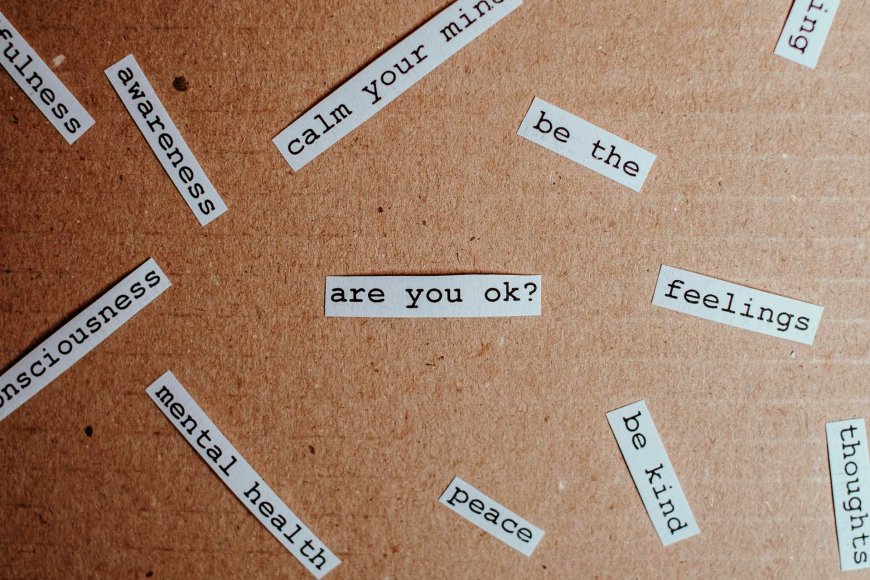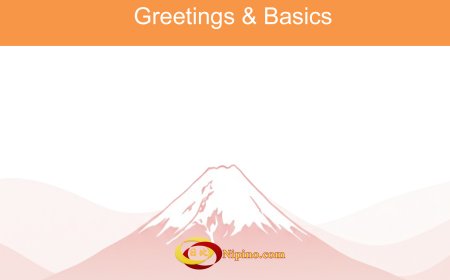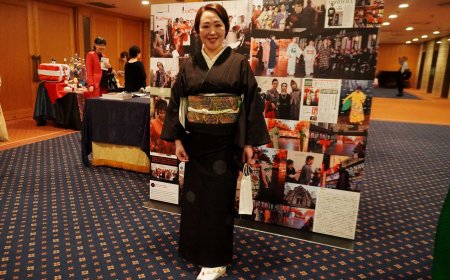Fuwa Fuwa Kotoba: The Gentle Words That Build Connection
Words have the power to heal, uplift, and connect. By embracing Fuwa Fuwa Kotoba, or gentle words, we can create deeper, more meaningful relationships while spreading positivity in every interaction.

Building Stronger Relationships Through Kindness and Empathy
In Japanese culture, the concept of "Fuwa Fuwa Kotoba" (ふわふわ言葉), or "fluffy words," represents kind, gentle, and uplifting language that nurtures positive relationships. These words stand in contrast to "Chiku Chiku Kotoba" (prickly words), promoting empathy, encouragement, and harmony in everyday interactions.

A Culture of Empathy
Fuwa Fuwa Kotoba originates from the deep-rooted Japanese values of harmony (wa) and respect. In a society where interpersonal connections are highly valued, gentle language serves as a tool to maintain peaceful relationships and avoid conflict. This practice aligns with Buddhist principles of compassion and mindfulness, encouraging people to speak with kindness and understanding.

The Psychology Behind Fuwa Fuwa Kotoba
Using Fuwa Fuwa Kotoba activates feelings of warmth and acceptance, fostering emotional safety in conversations. Research in psychology shows that kind words can reduce stress, enhance self-esteem, and strengthen interpersonal bonds. By choosing words that uplift rather than criticize, we create an atmosphere of trust and positivity, both for ourselves and others.

The Impact of Fuwa Fuwa Kotoba on Relationships
Fuwa Fuwa Kotoba acts as a balm in relationships, easing tension and promoting understanding. In romantic relationships, words like “I appreciate you” or “Thank you for your effort” can foster closeness. Among family and friends, expressing gratitude and encouragement strengthens bonds and creates an environment where everyone feels valued.

Fuwa Fuwa Kotoba in Parenting: Raising Compassionate Children
Incorporating Fuwa Fuwa Kotoba in parenting helps raise children who are empathetic and self-assured. Encouraging phrases like “You did your best!” or “I’m proud of your effort” motivate children to grow without fear of harsh criticism. These gentle affirmations nurture their confidence and teach them to communicate with kindness.

Fuwa Fuwa Kotoba in the Workplace: Building Collaborative Team
In professional settings, Fuwa Fuwa Kotoba enhances teamwork and morale. Managers can inspire employees by using phrases like, “Great work, let’s build on this!” rather than focusing on shortcomings. Positive communication fosters collaboration and trust, ultimately leading to a more productive and harmonious workplace.

Fuwa Fuwa Kotoba and Mental Health
The use of Fuwa Fuwa Kotoba not only benefits relationships but also contributes to mental well-being. Hearing kind words can lower anxiety and improve one’s mood, while speaking positively reinforces a sense of optimism. This cycle of positivity creates a supportive emotional environment for everyone involved.

Fuwa Fuwa Kotoba in Digital Spaces
In an age of social media, Fuwa Fuwa Kotoba plays a vital role in combating online negativity. Posting constructive and uplifting comments helps build healthier digital communities. Campaigns promoting online kindness encourage users to think before they post, spreading compassion even in virtual interactions.

Mindfully Practicing Fuwa Fuwa Kotoba
Practicing Fuwa Fuwa Kotoba requires mindfulness in how we communicate. Before speaking, ask yourself:
- Will my words uplift or discourage?
- How would I feel hearing these words directed at me?
By cultivating this habit, we can make conscious choices to spread positivity in every interaction.

Embracing Fuwa Fuwa Kotoba for a Better World
Fuwa Fuwa Kotoba reminds us of the profound impact words can have on our lives and relationships. By choosing kind and gentle language, we not only strengthen our connections but also contribute to a more compassionate and harmonious society. Start today by sprinkling Fuwa Fuwa Kotoba in your conversations—small changes can lead to big transformations.
Examples of Fuwa Fuwa Kotoba in Daily Life
Scenario 1: Encouragement in School
English:
"You did a great job on your project! I can see how much effort you put into it."
Japanese:
「プロジェクト、よく頑張ったね!一生懸命やったのがわかるよ。」
(Purojekuto, yoku ganbatta ne! Isshōkenmei yatta no ga wakaru yo.)
Scenario 2: Support in the Workplace
English:
"This presentation is off to a great start! Let’s work together to make it even better."
Japanese:
「このプレゼン、良いスタートだね!もっと良くするために一緒に頑張ろう。」
(Kono purezen, yoi sutāto da ne! Motto yoku suru tame ni issho ni ganbarō.)
Scenario 3: Reassurance in Family
English:
"It's okay if you made a mistake. Everyone makes mistakes; what matters is that you’re learning."
Japanese:
「失敗しても大丈夫だよ。誰でも失敗するし、大事なのはそこから学ぶことだよ。」
(Shippai shite mo daijōbu da yo. Dare demo shippai suru shi, daiji na no wa soko kara manabu koto da yo.)
Scenario 4: Compliment Among Friends
English:
"You always make everyone feel comfortable. Your kindness really stands out!"
Japanese:
「あなたはいつもみんなを安心させてくれるね。本当に優しさが際立っているよ!」
(Anata wa itsumo minna o anshin sasete kureru ne. Hontō ni yasashisa ga kiwadatte iru yo!)
Scenario 5: Affirmation in a Relationship
English:
"I appreciate everything you do for us. It makes me feel so cared for."
Japanese:
「いつも私たちのために色々してくれてありがとう。本当に大切にされていると感じるよ。」
(Itsumo watashitachi no tame ni iroiro shite kurete arigatō. Hontō ni taisetsu ni sarete iru to kanjiru yo.)
Find Cheap Flight Tickets to any Destinations in Japan and the Philippines
Nipino.com is committed to providing you with accurate and genuine content. Let us know your opinion by clicking HERE.































































